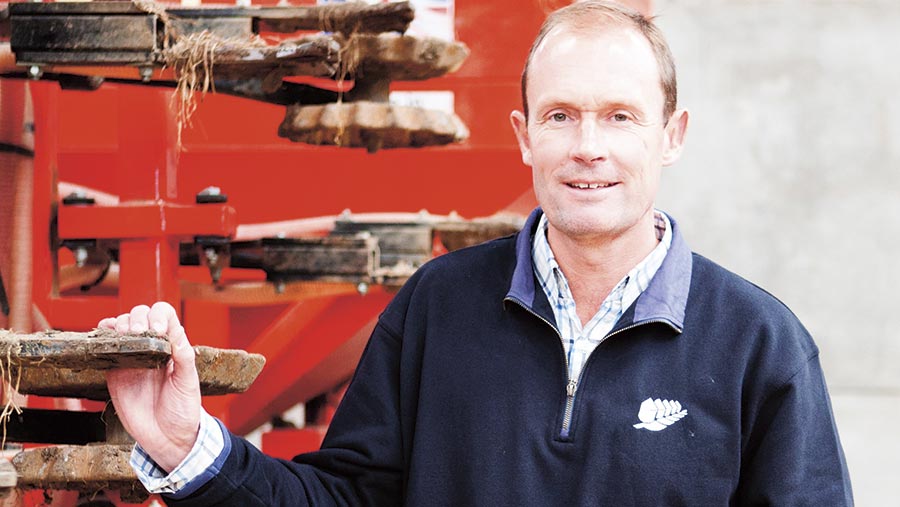Farmer Focus: Low grain prices mean used drill purchase over new
 © Alexandra Joseph
© Alexandra Joseph After two springs, and an autumn, of no-till disc drill demos I have finally made a purchase to compliment my Dale tine drill.
I am grateful to all the companies that showed me their wares but unfortunately for them, while at the start of the exercise I was getting £150 for milling wheat, I sold my last tonnes this year for substantially less, and it’s a similar story for the value of the machinery I wanted to trade in.
Therefore, based on the economics, and the demos, I have bought a second-hand Sumo Moore.
No doubt it won’t be perfect but I hope it will enable us to expand our direct drilling capabilities.
See also: Read more from our Arable Farmer Focus writers
The first thing I did at Cereals this year was attend the launch of Linking the Environment And Farming’s (Leaf) new five year strategy (at the modest Frontier stand).
I have to say my latest learning through the Agricultural Training Partnership, this time with Bangor University (all online before you ask), has both pushed home the importance of increasing the sustainability of our foods systems and widened my appreciation of what that means.
It could be not only about cycling of resources, but also of the well-being of society as a whole.
As an example, at the launch, Leaf’s chief executive Caroline Drummond mentioned that agriculture should be at the heart of the discussion on how to solve public health concerns, but we are not involved at all.
The word “sustainability” is in danger of being worn out, but driving around the country a visual reminder that we are struggling with it is the large areas of crops that are going over to “the dark side”, as indicated by the mask of blackgrass.
After several days of rogueing recently I awoke one morning in a cold sweat after dreaming I was battling through a field of thick, 10ft blackgrass.
Another image that could lead to nightmares was the picture board on display by Rothamsted Research at Cereals, showing SDHI resistant septoria isolates causing completely dead leaves, even at high fungicide rates.
No gradual shift in efficacy here it seems, just an immediate off switch.
Andy Barr farms 700ha in a family partnership in Kent. Combinable crops amount to about 400ha and include milling wheat and malting barley in an increasingly varied rotation. He also grazes 800 Romney ewes and 40 Sussex cattle and the farm uses conservation agriculture methods.

